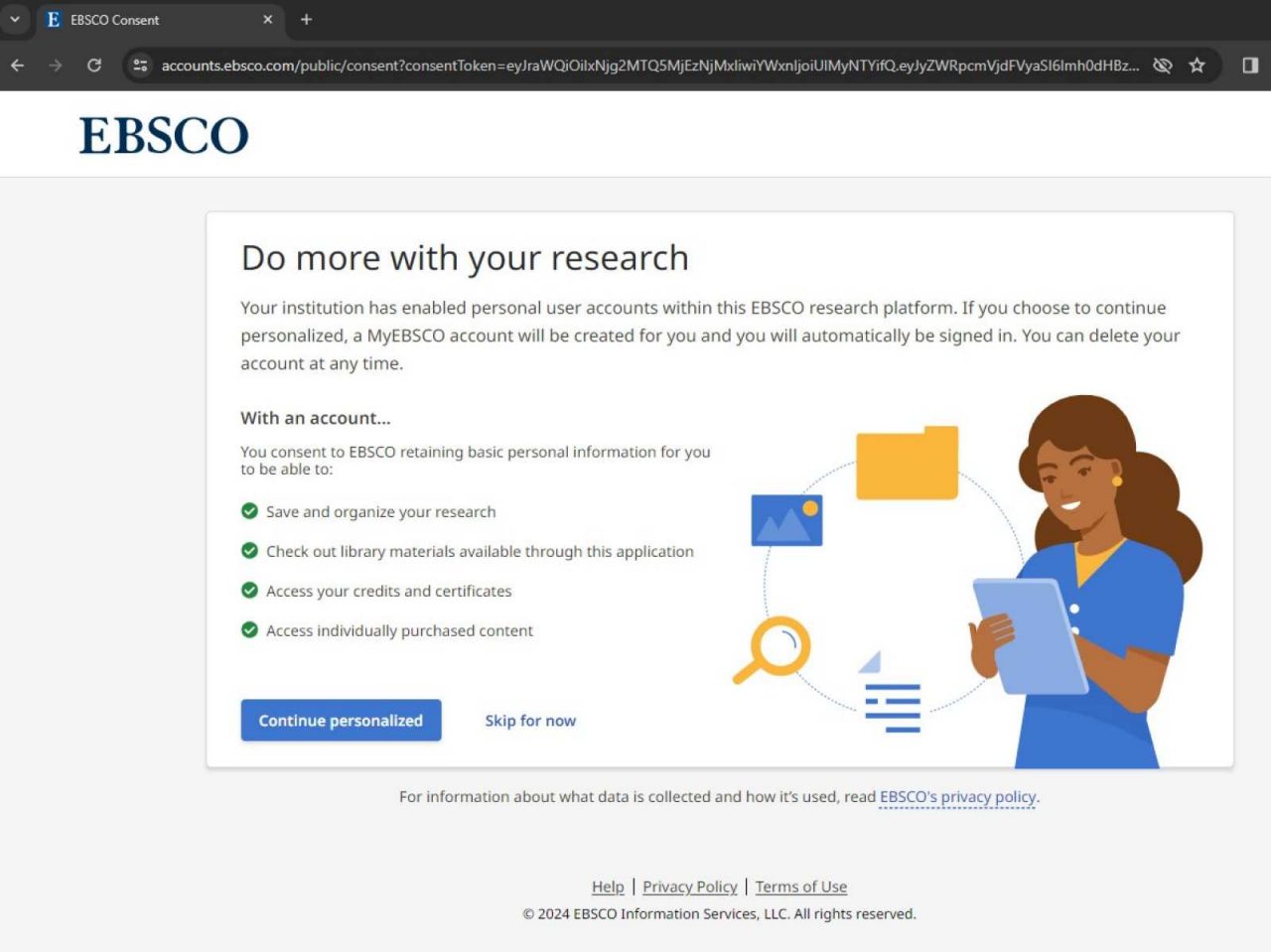Always was, always will be Aboriginal land.
The University of Sydney Library acknowledges that our buildings, collections, and practices exist on unceded Aboriginal lands. We recognise the diversity and knowledges of the Aboriginal and Torres Strait Islander staff and students across all the lands the University stands on, and respect the ongoing connection Aboriginal people have to these lands, their cultural practices, knowledge systems and histories. We pay our respects to their Elders, past and present, who have handed down custodianship to each generation for more than 60,000 years.
Money, J. (2021). Yilabara (Now). Filmed on Gadigal Country. Commissioned by the University of Sydney Library
Update to EBSCO databases to streamline accounts from late June 2024


Person working on laptop at a desk
EBSCO Information Services is one of the Library’s most frequented database platforms, enabling people to access over 40 databases across disciplines. Popular databases include CINAHL, Business Source Ultimate and ERIC. EBSCOhost is also a popular platform for eBooks.
Upcoming changes
Currently, Library users can access EBSCO databases automatically through a single-sign on (SSO) process using their UniKey credentials. This enables users to browse content and download articles. However, users are currently required to manually sign up for a personal MyEBSCO account in order to download eBooks, save searches or save alerts.
Our upcoming changes will prompt users to create a personalised account using their University credentials as soon as they access EBSCO, saving time and streamlining the login in process.
This update is part of overarching Library updates to ensure we are following best practice and making digital access as efficient as possible.
What to do next
- When first accessing EBSCO from late June 2024, you will see a pop-up like the one below. Once you click “Continue personalized”, EBSCO will automatically create and link a new MyEBSCO personalised account. This will automatically be logged in to whenever you access EBSCO in the future. You can now download articles and eBooks, save searches and save alerts without any further logins.
- If you click “Skip for now”, you can continue to access EBSCO content as normal. You can manually log in to your existing personal MyEBSCO account, however if you’d like to activate your new automatic MyEBSCO account, simply choose to “sign in” and the pop-up will display again.
- If you already have an existing personal MyEBSCO account, clicking “Continue personalized” will create a brand new MyEBSCO personalised account, and you will not be able to see any previous content you’ve saved. To merge your old and new accounts, follow the instructions on the EBSCO website (account merges are reflected immediately).
You can alternatively select “Skip for now” and continue using your existing personal MyEBSCO account as per usual.
Please note that existing personal MyEBSCO accounts will not be deleted, and you can merge your accounts at any time.
We hope this streamlined process assists your academic research. Browse all the Library’s database online and view our upcoming events, including workshops on research skills.


Screenshot of EBSCO website prompting the user to create a personalised account.